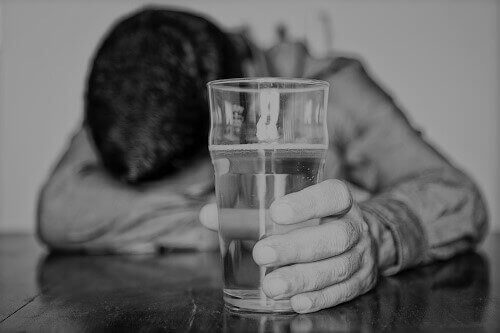Proving Alcoholism in Custody Cases
 Alcoholism is a disease that can turn the most amicable person into a danger. Due to the unpredictability of alcohol use and abuse, family law courts are generally uncomfortable or unwilling to assign any amount of child custody rights – including both legal custody and physical custody – to a known alcoholic. Doing so could easily jeopardize the child’s best interests, which a court may never do willingly. Even if the alcoholic parent does not pose a physical threat of violence or emotional abuse, an addiction to alcohol will almost certainly interrupt expected parenting responsibilities.
Alcoholism is a disease that can turn the most amicable person into a danger. Due to the unpredictability of alcohol use and abuse, family law courts are generally uncomfortable or unwilling to assign any amount of child custody rights – including both legal custody and physical custody – to a known alcoholic. Doing so could easily jeopardize the child’s best interests, which a court may never do willingly. Even if the alcoholic parent does not pose a physical threat of violence or emotional abuse, an addiction to alcohol will almost certainly interrupt expected parenting responsibilities.
If you are divorcing a spouse who you know to be an alcoholic, then you need to start thinking about how you can prove that alcoholism to the court. Word of mouth is not effective at convincing a judge for something as important as a child custody order. In order to maximize the effectiveness of your argument and your chances of getting sole custody away from your alcoholic ex-spouse, you want to get real-world evidence of his or her alcoholism.
How to Prove Alcoholism in Custody Cases
Three key examples of proof of alcoholism you can use in your child custody case are:
- Court-mandated treatments: Has your spouse been ordered by the court to undergo some form of alcoholism treatment? No matter the reason why the court made such a mandate, it can be used to prove that your spouse has an alcohol addiction. If your spouse completed the treatment program, you may want to remind the court that medical and psychological professionals rarely consider alcoholism to ever be cured.
- DUI arrests: An arrest record that shows your spouse has been arrested, charged, or convicted for driving under the influence (DUI) will be a powerful tool to use to your advantage. Keep in mind that other alcohol-related arrests, such as public intoxication, are just as useful. If your spouse has expunged or sealed his or her criminal record to hide DUI arrests, you should talk to a family law attorney to decide if it is worth seeking a warrant in order to reveal those arrests to the court.
- Medical record: You can also access medical records that show your ex-spouse has been admitted for hospitalization or emergency care for injuries or conditions related to alcoholism. A person who cannot care for themselves due to alcohol addiction will not likely be able to care for a child of any age.
If your ex-spouse already has temporary or court-assigned custody of your child, it is important to never ask your child to watch your spouse and tell you when he or she drinks alcohol. Attempting to manipulate your child in any way for your advantage in a family law case is frowned upon and could jeopardize your own parental rights.
Need help proving that you are best suited to care for your child through sole custody? Gill Law Group, PC can be retained for professional guidance backed by years of experience and appreciative client testimonials. With our advocacy leading the way for your case, we may be able to secure full child custody for you and set up a visitation schedule that works best for everyone.
Call (888) 392-1941 or contact us online to schedule a complimentary consultation!
